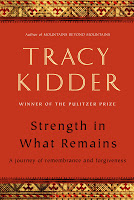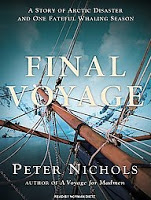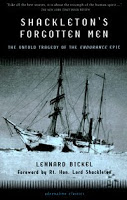Laurie Kelley
December 21, 2009
Bob Massie was given a second chance at life this summer. In a previous blog I shared how this famous person with hemophilia, made famous by his own parents who tell his life story of growing up with hemophilia in the 1960s and 70s in the incredible book Journey, received a liver transplant this summer in Atlanta, in a historic operation. Bob is doing much better, and looks great. I was honored to get a phone call from him, and an invitation to his home in Somerville. I visited him last week.
I hadn’t seen Bob in years, not since he decided to run for the office of Lieutenant Governor of Massachusetts, the first person with HIV to do so. It was great to see him, and I had kept up with him periodically through his sister, Susanna, who also has a son with hemophilia. Bob wanted more than to just visit; he wanted to give back the gift of life: his remaining inventory of factor.
His gift of 120,000 IU of factor will indeed give life to many in developing countries. We have a long list at Project SHARE, and this meant tooth extractions, surgeries and emergency stores could be provided.
The Massie’s home is lovely, one of those solid, stately colonial homes that is so firmly built it could withstand a hurricane. Somerville is a densely populated city, with little space. Houses sit in a row, closely together. The Massie’s house has an ample back yard, with garden and trees. Inside, framed photos are everywhere: his family, including his lovely wife Anne, and his three children, John, Sam and Katie. A photo of young Bob in a wheelchair with Muhammad Ali caught my eye. I remember the wheelchair shot (sans Ali) in the book Journey. Other photos included Bob with Hilary Clinton, Bill Clinton, and Al Gore.
I got to meet John, who is a college student, a polite and friendly young man. It sounds like the Massies are all doing well; mother Suzanne, who is an expert on all things Russian and served even as advisor to president Ronald Regan, still at the age of 79 dashes off to Russia and continues her work there. Amazing, but when you read Journey, you are reminded again of her strength.
From the many people around the world this holy week of Christmas who will receive a most wonderful gift of factor, a gift of life, thank you, Bob Massie. We all wish you continued good health and happiness!
Great Book I Just Read
What Strength Remains by Tracy Kidder
I’ve been a fan of Kidder’s since reading (three times) Mountains Beyond Mountains. In this wonderful book, 
Kidder tells the remarkable story of Deo, a third-year medical student, and a refugee from Burundi, who arrives in New York in 1994 penniless and suffering from post-traumatic stress disorder. He escaped one horror to face new struggles: no knowledge of English sleeping in abandoned tenements in Harlem, working for $15 a day. Occasionally Deo, who survived horrors in Burundi, is disturbed by flashes of memory of his past. Kidder accompanies Deo for 6 months, documenting his progress, recording hsi story and eventually returns to Burundi with him. When recording his story about the genocide in war torn Burundi and Rwanda, Deo panics. Deo describes what his people call “gusimbura,” the ability–the unwillingness– not to recall bad things, and begs Kidder not to “gusimbura” him. He wants to forget.
Kidder is one of our greatest skilled, journalist writers; the story moves effortlessly, and deeply: Deo is first befriended by a nun, then an older couple, a sociologist and his wife, an artist, who pay for him to enroll at Columbia University’s School of General Studies. He eventually gets to medical school; you will be inspired at his determination and intelligence. All seems well. But all is not well. His return to Burundi is heartbreaking and healing; in the end, a glorious thing happens. Please read this book: it will make a wonderful holiday gift for someone you know–or yourself! Be inspired by the amazing life of Deogratis, whose name means in Latin, “Thanks to God.” Four stars.








